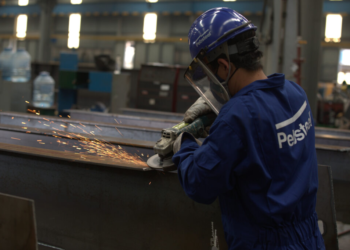Growth presents wonderful problems. Cramped quarters and conference room shortages indicate your business is thriving. Yet navigating an office expansion requires a thoughtful strategy beyond simply acquiring more square footage. This transition represents both a practical challenge and a strategic opportunity to design a workspace that actively fuels your next growth phase. For those managing a move, understanding the managed office landscape can transform a stressful process into a streamlined upgrade.
Recognising When It’s Time
How can you be certain you need more space? Look beyond the obvious signs of physical crowding. Consider whether your current layout stifles collaboration or quiet focus. Are team members working from home more frequently due to a lack of proper workspaces? Perhaps client meetings may be held elsewhere because your conference room also serves as a storage closet. These functional limitations often signal the need for change before headcount alone justifies expansion.
The Managed Office Advantage
Why consider another managed space rather than a traditional lease? The answer lies in flexibility and focus. Managed offices eliminate the massive upfront investment and long-term commitment of conventional leases. Instead of managing construction projects and purchasing furniture, you step into a fully functional professional environment. This proves particularly valuable for UK residents navigating complex commercial real estate markets. Investigating regional options, such as managed offices in Liverpool, can provide solutions tailored to local business ecosystems while maintaining operational consistency during expansion. The relief of finding a managed office can transform a stressful process into a streamlined upgrade, reassuring you that your business is in good hands.
Location Strategy Reimagined
Your growing business likely has different geographical needs than your startup version did. This move offers a chance to reassess location through a strategic lens, empowering you to make informed decisions. Evaluate transportation access for both current staff and potential recruits. Consider proximity to clients, partners, or industry clusters that might benefit your expanding operation. The right location can enhance your brand perception, improve work-life balance for employees, and even open new networking opportunities.
Budgeting Beyond Square Footage
Financial planning for this transition requires looking past the base rental rate. Carefully examine what’s included in the management fee—utilities, maintenance, security, and administrative support. Identify any potential additional charges for services like extra meeting room hours or phone lines. Factor in moving expenses, potential double rent during transition, and any costs associated with exiting your current space. A comprehensive budget ensures your growth remains financially sustainable.
Executing a Seamless Transition
The actual relocation process demands meticulous coordination. Create a detailed timeline with clear responsibilities for team members. Designate a move coordinator to liaise with both your current and new office management teams. Schedule the physical move during off-hours or weekends to minimise business disruption. Since managed spaces come fully equipped, your focus remains solely on transporting people and possessions rather than building infrastructure.
Integrating Team and Culture
A new office should feel like an upgrade for everyone. It’s important to involve your team in the planning process where appropriate—solicit input on layout preferences and desired amenities. Once moved, facilitate proper orientation sessions to familiarise everyone with the new space and available resources. This inclusive approach transforms the relocation from a logistical exercise into a cultural moment that reinforces company values and team cohesion, making everyone feel part of the journey.
Grow Your Team with Confidence
Ultimately, upgrading your office space represents a significant milestone in your company’s journey. By choosing the managed office pathway, you opt for flexibility over permanence, convenience over customisation, and focus over fragmentation. This strategic approach allows you to channel energy into core business activities rather than property management, ensuring your expanding company has the solid foundation needed for its next chapter of growth.
David Prior
David Prior is the editor of Today News, responsible for the overall editorial strategy. He is an NCTJ-qualified journalist with over 20 years’ experience, and is also editor of the award-winning hyperlocal news title Altrincham Today. His LinkedIn profile is here.











































































